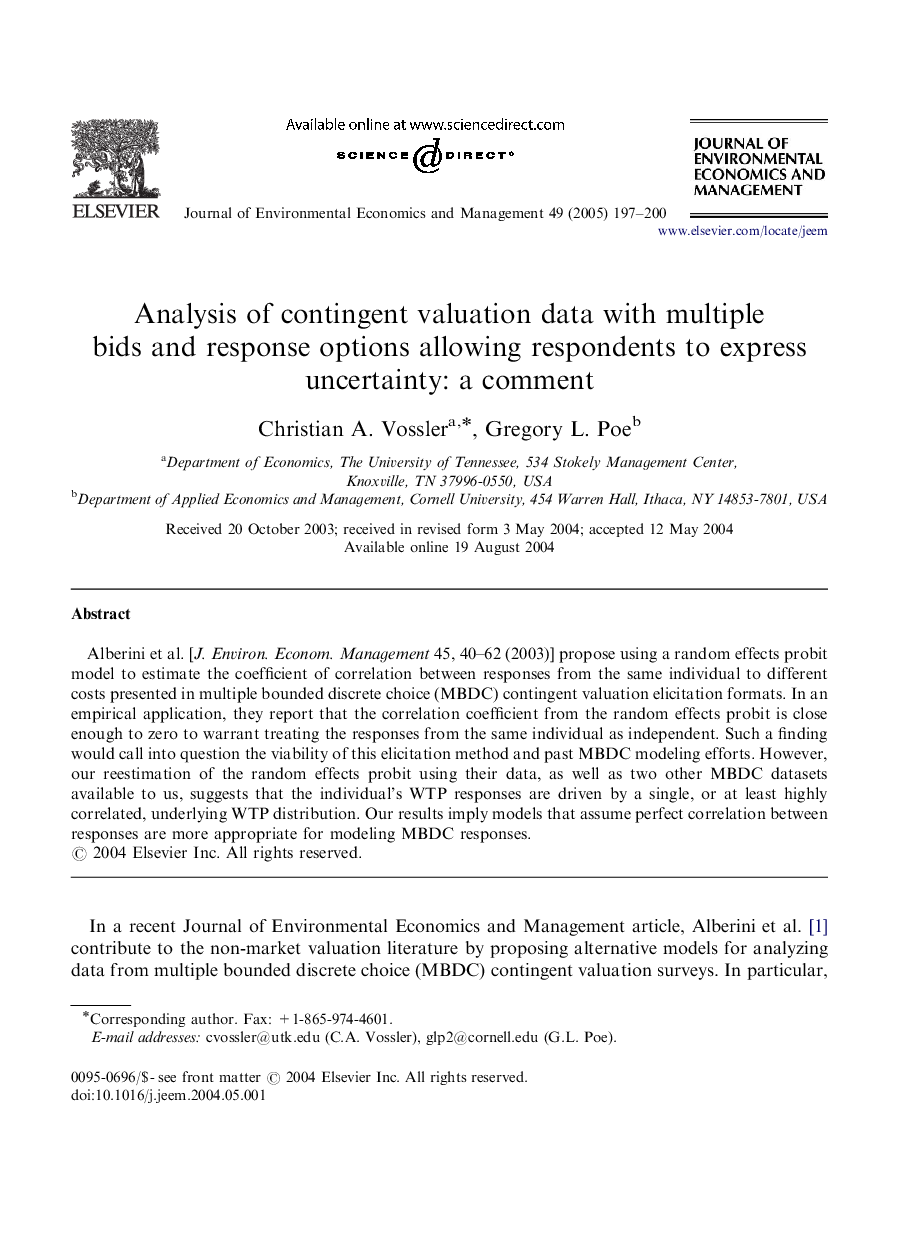| Article ID | Journal | Published Year | Pages | File Type |
|---|---|---|---|---|
| 10475473 | Journal of Environmental Economics and Management | 2005 | 4 Pages |
Abstract
Alberini et al. [J. Environ. Econom. Management 45, 40-62 (2003)] propose using a random effects probit model to estimate the coefficient of correlation between responses from the same individual to different costs presented in multiple bounded discrete choice (MBDC) contingent valuation elicitation formats. In an empirical application, they report that the correlation coefficient from the random effects probit is close enough to zero to warrant treating the responses from the same individual as independent. Such a finding would call into question the viability of this elicitation method and past MBDC modeling efforts. However, our reestimation of the random effects probit using their data, as well as two other MBDC datasets available to us, suggests that the individual's WTP responses are driven by a single, or at least highly correlated, underlying WTP distribution. Our results imply models that assume perfect correlation between responses are more appropriate for modeling MBDC responses.
Related Topics
Social Sciences and Humanities
Economics, Econometrics and Finance
Economics and Econometrics
Authors
Christian A. Vossler, Gregory L. Poe,
